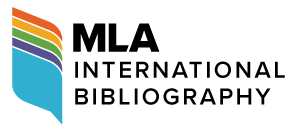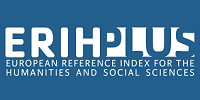Translation in Writing and Heterolingual Poetics in Djaïli Amadou Amal’s ‘Munyal, les larmes de la patience’ and ‘Mistiriijo: la mangeuse d’âmes’
DOI:
https://doi.org/10.7203/HYBRIDA.9.28090Keywords:
orality, writing, reading, translation, heterolingualism Abstract
Abstract
This paper investigated the writing technique used by Djaïli Amadou Amalu to express the African oral poetics in her novels. In particular, it examined the role played by translation in an heterolingual fictional world where Fulfulde and French coexist. The article posited that, in order to overcome the resistance to reception of her texts, and to enable the reader to become accustomed to the foreignisation of their language, the novelist established a complicity with this multilingual reader, for whom reading itself remains an act of translation. She facilitated this reading by means of endnotes and footnotes. The aim of the study was therefore to show that the writing-translation offered by this author was a means of achieving inter-comprehension between French and Sudano-Sahelian cultures. To this end, the study drew on Bhabha’s theory of cultural hybridity (1994), which sheds light on how postcolonial fiction leverages hybridity and métissage in textual and semantic terms.
 Downloads
Downloads
 References
References
Amadou Amal, Djaïli, 2017. Mistiriijo, la mangeuse d’âme. Yaoundé : Proximité
Amadou Amal, Djaïli, 2021. Munyal, les larmes de la patience. Yaoundé : Proximité
Bandia, Paul, 2001. Le concept bermanien de l’« Étranger » dans le prisme de la
traduction postcoloniale. TTR, 14(2), 123–139. [En ligne] https://doi.org/10.7202/000572ar
Berman, Antoine, 1995. Pour une critique des traductions : John Donne. Paris :
Éditions Gallimard, « Bibliothèque des idées ».
Bokobza, Serge, 1986. Contribution à la titrologie romanesque : variations sur le titre
Le Rouge et le Noir. Genève : Droz, coll. « Stendhalienne ».
Guidère, Mathieu, 2008/2016. Introduction à la traductologie. Penser la traduction :
hier, aujourd’hui, demain. 3e éd. Traducto. Bruxelles : De Boeck.
Hurtado Albir, Amparo, 2001. Traducción y traductología, introducción a la
traductología. Madrid: Cátedra.
Meschonnic, Henri, 1972. Propositions pour une poétique de la traduction. Langages, 7ᵉ
année, n°28, La traduction, 49-54 [En ligne] https://www.persee.fr/doc/lgge_0458- 726x_1972_num_7_28_2097
Meschonnic, Henri, 1973. Pour la poétique ii. Épistémologie de l’écriture poétique et
de la traduction, « Le Chemin ». Gallimard :Paris.
Nida, Eugene Albert, 1964. Towards a Science of Translating: With Special Reference
to Principles and Procedures Involved in Bible Translating. Leiden: Brill.
Panoff, Michel et Michél Perrin, 1973. Dictionnaire de l'ethnologie. Paris : Payot.
Sardin, Pascale, 2007. De la note du traducteur comme commentaire : entre texte,
paratexte et prétexte. Palimpsestes 20, 121-136. [En ligne] https://doi.org/10.4000/palimpsestes.99
Venuti, Lawrence. 2008. The Translator’s Invisibility: A History of Translation.
London & New York: Routledge.
Downloads
Published
How to Cite
-
Abstract11
-
PDF (Français )13
Issue
Section
License
Copyright (c) 2024 HYBRIDA. Scientific Journal on Cultural Hybridizations and Migrants’ Identities

This work is licensed under a Creative Commons Attribution-NonCommercial-ShareAlike 4.0 International License.
![]()
All the documents in the OJS platform are open access and property of their respective authors.
Authors publishing in the journal agree to the following terms:
- Authors keep the rights and guarantee HYBRIDA the right to be the first publication of the document, licensed under a Creative Commons license Attribution-NonCommercial-ShareAlike 4.0 International (CC BY-NC-SA 4.0) that allows others to share the work with an acknowledgement of authorship and publication in the journal.
- Authors are allowed and encouraged to spread their work (once published) through electronic means using personal or institutional websites (institutional open archives, personal websites or professional and academic networks profiles) once the text has been published.















